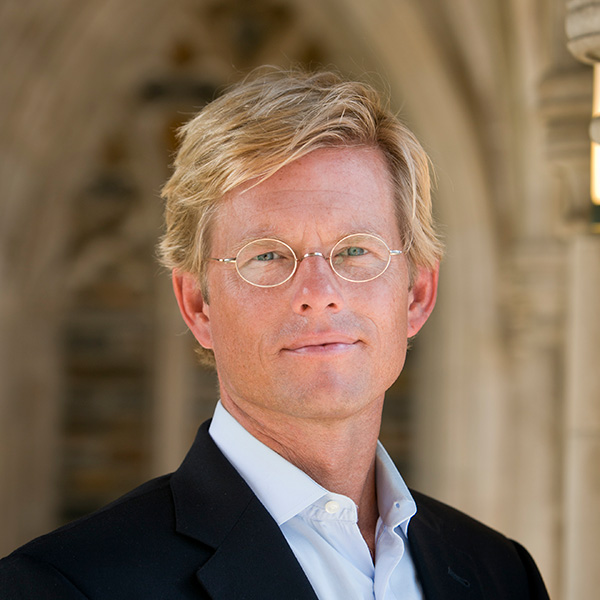We are awash in words. Never before in the history of the human race have so many words been so widely thrown about and with such remarkable reach. The advent of the digital age began the age of words, words, words. Of the making of books there has always been no end, but never before have we had the chance -- and burden -- of words 24/7/365. Email, text, Twitter, TV and everything else. Words are always with us.
What should leaders do with words? Leaders have known from times long vanished that they need to be careful with what they say. All the ancients knew well that words do things. They thus educated themselves in rhetoric from beginning to end. Modern thinkers, too, have reflected on the indispensability of words, on the importance of the right words for the right thoughts, on the slippery nature of politically intentional ambiguity and so on.
But there have also been those who have considered the danger of too many words.
In his 1851 work “For Self-Examination,” the Christian thinker Søren Kierkegaard wrote that “everything is noisy; and just as a strong drink is said to stir the blood, so everything in our day, even the most insignificant project, even the most empty communication, is designed merely to jolt the senses or to stir up the masses, the crowd, the public, noise!”
Noise.
We seem, he continues, “to have become sleepless in order to invent ever new instruments to increase noise, to spread noise and insignificance with the greatest possible haste and on the greatest possible scale.” The result is that “everything is … turned upside down: communication is indeed … brought to its lowest point with regard to meaning, and simultaneously the means of communication are indeed brought to their highest with regard to speedy and overall circulation; for what is publicized with such hot haste and, on the other hand, what has greater circulation than -- rubbish!”
Kierkegaard’s remedy to the noisy and speedy spread of rubbish is silence: “Oh, create silence!”
There are obviously many goods to the digital age, but Kierkegaard’s outburst here was far more prophetic than he would ever have been able to imagine. Perhaps the single most important thing a leader can do in a speedy world of words is to learn how to use them. In our time, this requires the discipline of silence.
If the speedy dissemination of rubbish mocks the importance of words, the discipline of silence respects their power. In a sense, silence is a prerequisite for learning how to use words well. It is often thought that silence has its roots in the importance of listening to others. This is doubtless true.
But it’s also the case that the significance of silence rests in the fact that once said, words cannot be taken back. We can never unsay something we have said. Indeed, the political spin doctors and damage-control experts make their living off this remarkable fact about words.
We are not accustomed to thinking of leaders as those who know how to be silent. We want them to put out a statement, give a response, open the conversation, interpret the recent news and so forth. And this, of course, is perfectly reasonable. In some ways, it is the gift and responsibility of leaders to do these things.
The trouble is that more speech sometimes turns out to be received as just more noise. And even leaders have difficulty reining in the tongue. Where we have emphasized the need for leaders to move into the digital age with ever more dexterity and speed, Kierkegaard reminds us that we should also counsel the development of disciplines that cut against the hasty production of words and more words.
Truth telling in difficult situations, for example, often requires silence. This is so not only because it can be just plain hard to get the truth out but also because it can be even harder to tell the truth wisely. Silence is the name for the time it takes to see the path of wisdom when truth is hard to tell.
Columnist David Brooks observed that the world of fast and loud often prevents us from hearing the quieter sounds from the depths. But these sounds are often those that we most need to hear when we want to tell the truth wisely.
The letter of James also knows the power and purpose of silence.
The author writes rather bluntly, “If anyone thinks he is ‘religious’ and yet does not bridle his tongue, but deceives his own heart, his religiousness is worthless” (1:26). In contrast to many other ancient writers on speech and silence, James knows that silence is the human way God’s compassion is often mediated. A constant talker cannot hear the cry of the widows and orphans (1:27).
Later in the letter, the author reflects on the remarkable power of the tongue: it is like a rudder that guides a massive ship, or a bit that can check a powerful steed. Used improperly, it is a match that can ignite a raging forest fire, or an instrument of cursing. But properly disciplined, the tongue is nothing less than the conduit of blessing (3:1-12).
Building from James, we could say that bridling the tongue is impossible without the discipline of silence. In our time, amid the swift spread of so much rubbish, silence is something we cannot do without if we want our tongues to bless and our religion to be true. Leaders who want to speak wisely would do well to learn how to keep silent.









